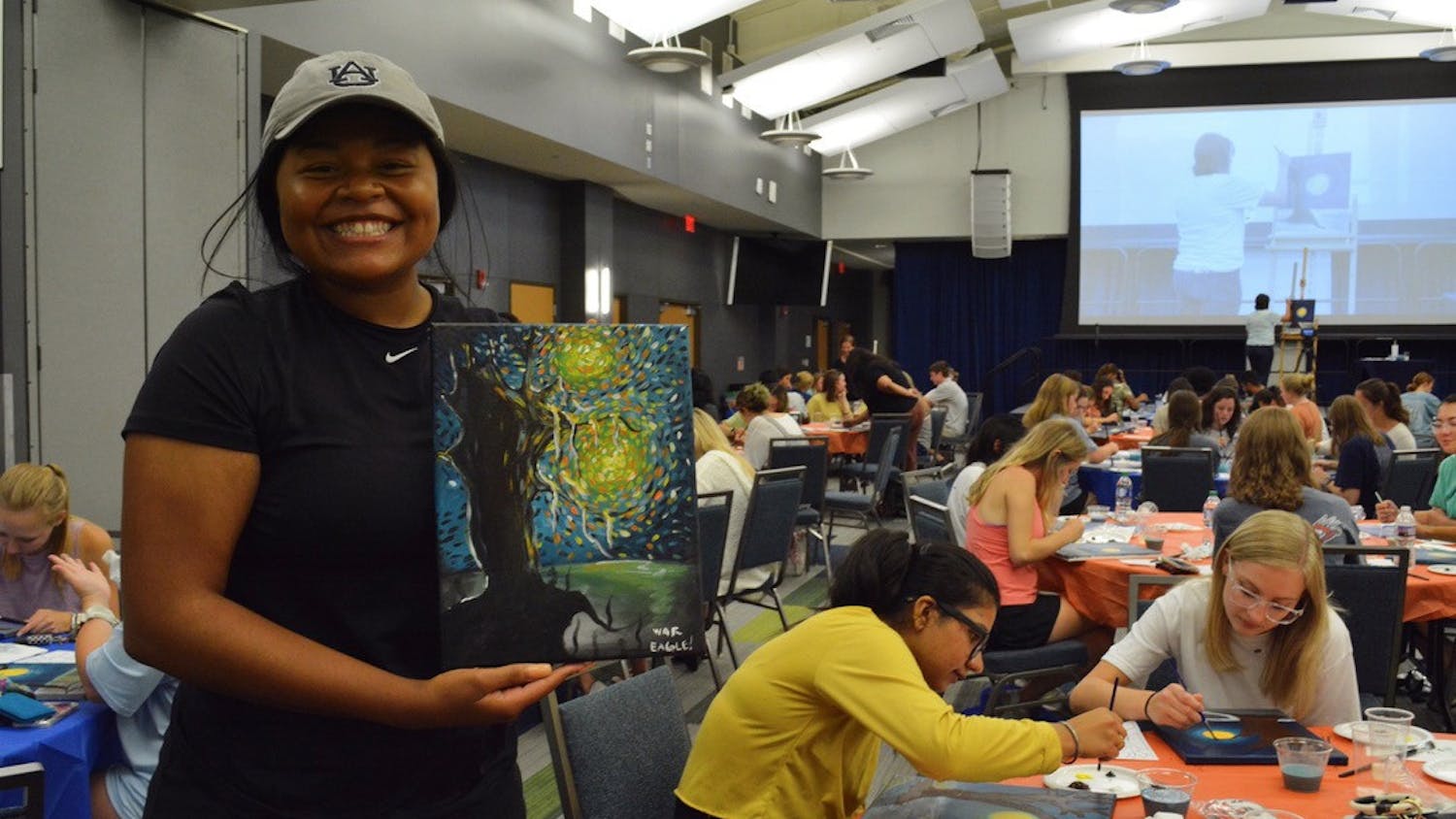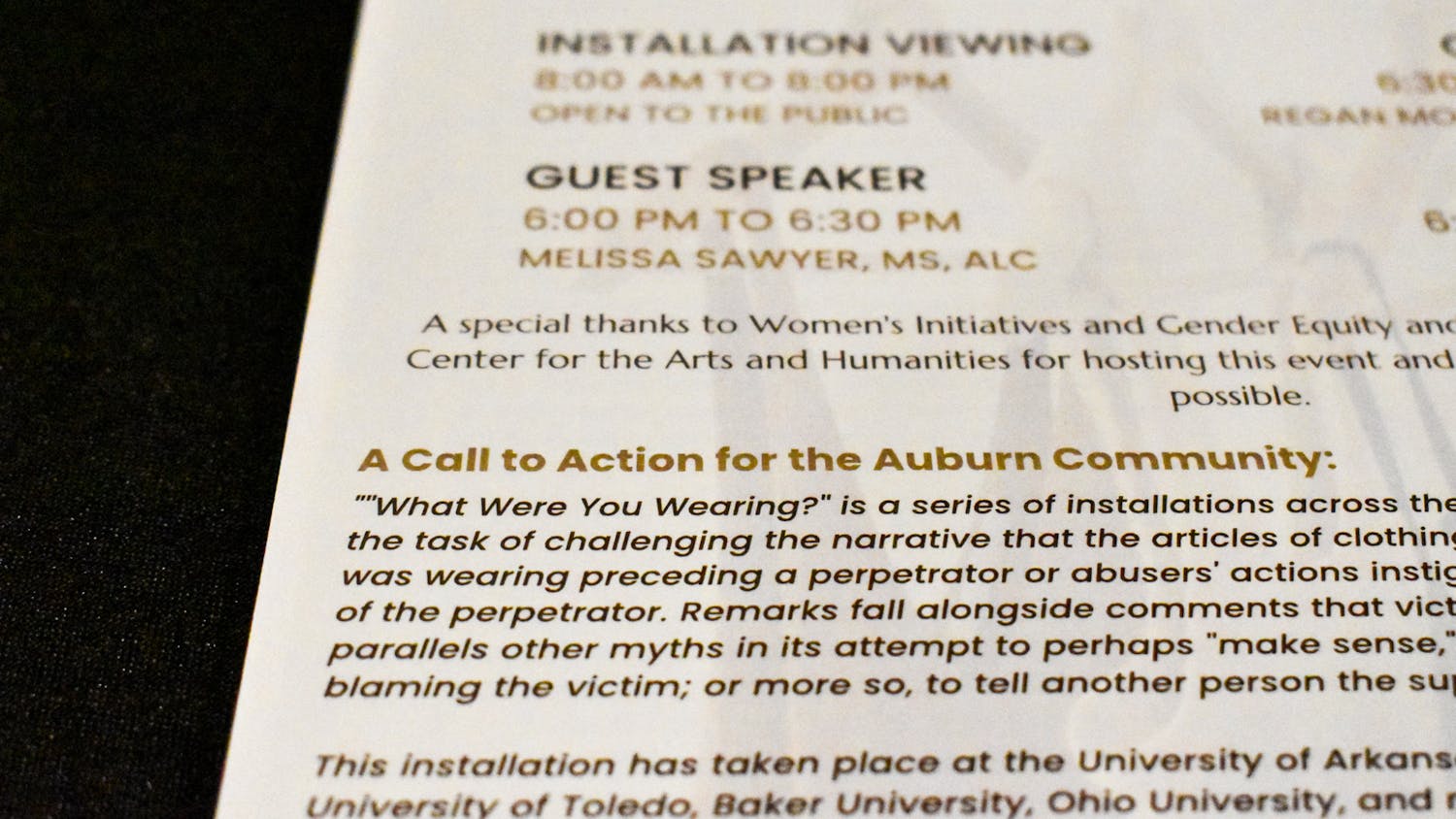This year was the first year the Delta Zetas entered to participate in Auburn University’s Tiger Stomp, a traditionally National Pan-Hellenic Council run event.
“I would really like my sorority to get involved in bridging the gap between the NPC (National Panhellenic Conference) and the (NPHC) National Pan-Hellenic Council) gap,” said Lexi Burkard, a senior in biomedical sciences and pre-pharmacy.
Burkard was appointed Delta Zeta Tiger Stomp chair with the help of Delta Zeta’s sister sorority Alpha Kappa Alpha.
Burkard was in charge of choreographing almost all of the dances the group needed to learn and step shows featured in her sororities’ performance.
“You have 15 minutes to put together your performance,” Burkard said. “That includes the time it takes to set up. You have to have traditional steps that your whole sorority knows but other than that you have free reign.”
Katherine Trotter, a junior in human exercise science, battled her allergies and homework and still said she had the best time of her life.
She said that all of her struggles were worth it.
“It hasn’t been as difficult because our practices are late at night,” Trotter said. “But one night I was running a fever and had to deal with that while I was at practice.”
The Delta Zeta’s began practicing months before the competition, but Burkard said they practiced every night after spring break.
“I have an 8 a.m. class, then work, then I work-out, then class again, work at the Pharmacy Health Services on campus, and then practice,” Burkard said.
Elizabeth Major, junior in human resources management, had never stepped before and said the hardest part was learning the steps so quickly.
“We would learn the steps in one day and then at the next practice learn the next part,” Major said. “But if you can hear it in your head, you can make your body do it.”
For those involved in dance, such as Burkard, who is a member of AU Rhythm, it was easier to choreograph and teach the dances.
“The easiest way to teach choreography is to show them what they are about to learn, and then break each move down,” Burkard said.
When the team first began practicing they were in the coliseum and didn’t have mirrors.
Eventually, they were able to move to the student activity center and practice in the facilities there that did have mirrors.
“My favorite part of this whole experience besides the dance itself was just being with my sorority sisters,” Trotter said. “Especially since I don’t live on the hall. It’s nice to have that time to see everyone, even the ones that are older.”
As the choreographer, Burkard faced many challenges the rest of the team did not have to worry about.
“The hardest part is learning to keep the beats in your head,” Burkard said. “Once you do that, you just put moves to it, and you have to pay more attention to hand placement and feet placement.”
Once performance day finally came, Major said she was excited to finally be there.
“It was really nerve-wracking,” Major said. “But, right when I got on stage, the nerves disappeared. When I came off the stage, I was like, ‘Let’s do it again!’”
Burkard said Tiger Stomp competitors have to remain in good shape, and maintain decent balance to be able to perform all of the moves required of them. Burkard said she felt her team did a great job, given none of them had ever stepped before.
“A lot of other sororities and fraternities have their own signatures moves,” Burkard said. “But we are still gabbling. I would like to see my sorority continue this tradition.”
Do you like this story? The Plainsman doesn't accept money from tuition or student fees, and we don't charge a subscription fee. But you can donate to support The Plainsman.



